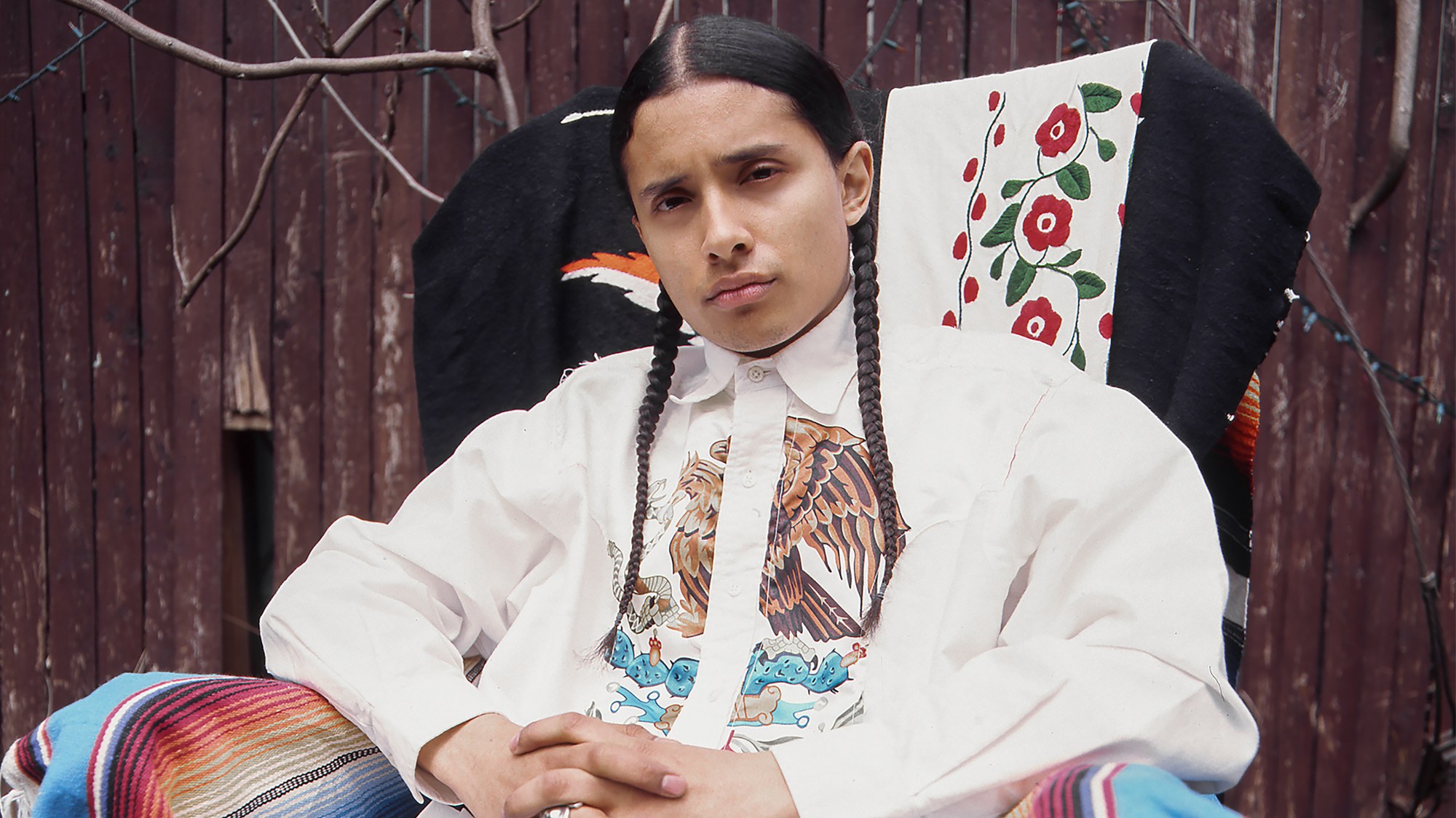This story originally appeared in i-D’s The Earthrise Issue, no. 368, Summer 2022. Order your copy here.
With his soft yet strikingly symmetrical facial features, trailing twin braids, and neo-dandy style, Victor Vegas is best known as one of New York’s most distinctive new generation of multi-hyphenates. He was originally set on being an actor, and there’s still a magnetic, screen-ready presence to the Indigenous New Yorker: he’s “so calm but also exudes such an intense energy”, as his friend, Vaquera Co-Founder Patric DiCaprio, aptly puts it.
It was a passion for storytelling that first drew Vegas – as he’s best known – to acting school, though upon his arrival, he quickly realised that the stories he’d be allowed to tell weren’t exactly those he had in mind for himself. “I got typecast as either a junkie, a gangster or a vagrant,” he recalls over Zoom from his home in Queens. “Granted, that’s how acting is… but it just wasn’t serving me anymore. I wanted to tell my own story.”
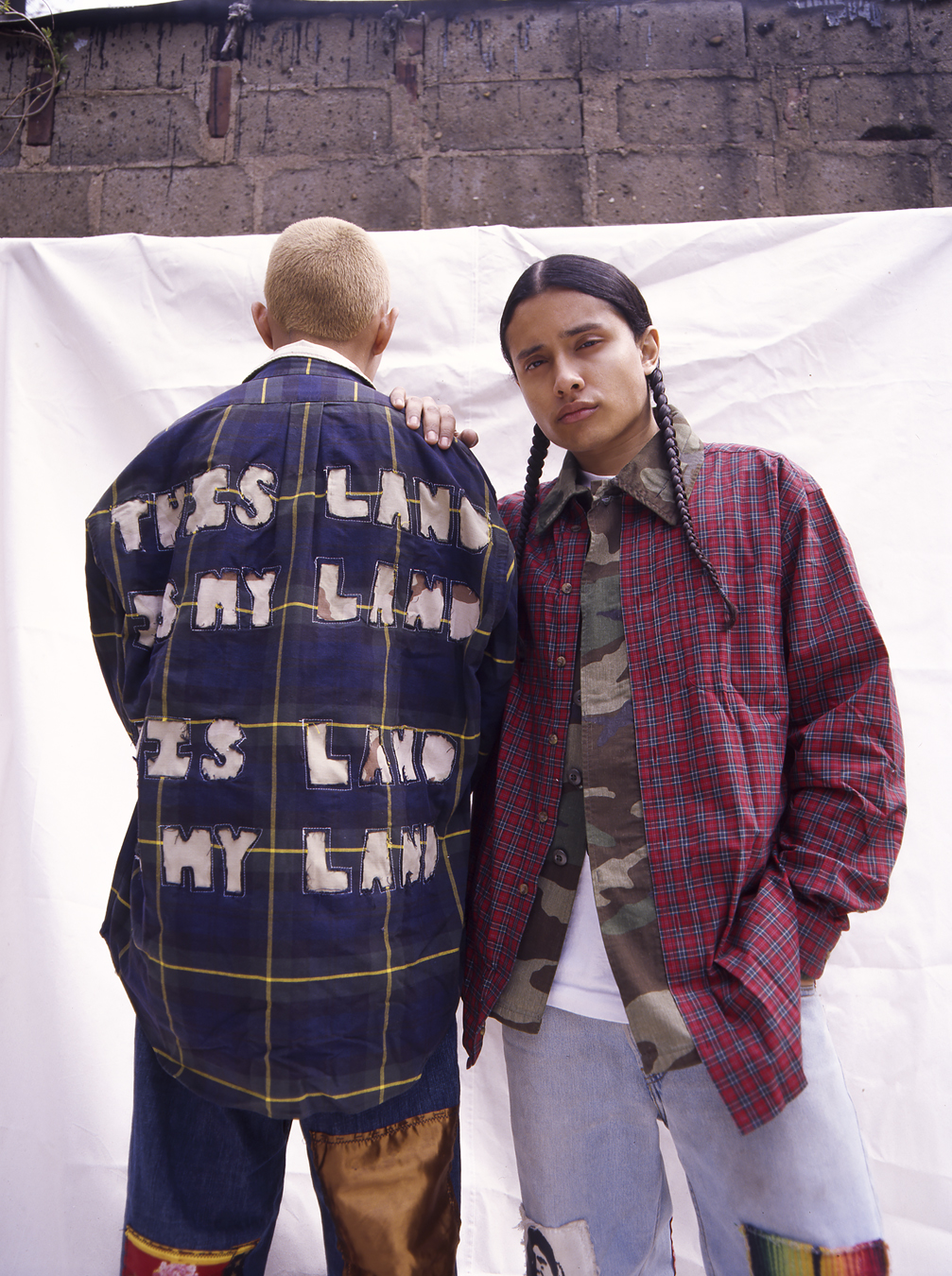
A chance encounter with Angelo Baque – the former brand director at Supreme and founder of Awake NY – set him on the path to exactly that, albeit told through fashion. Both Queens natives of Indigenous Ecuadorian heritage (Vegas is also of Indigenous Colombian heritage on his father’s side), an instant connection was forged, with Angelo offering Vegas an internship at Awake. Despite his lack of formal education in making clothes, and at his wits’ end with drama school, Vegas bowed out of his theatrical studies and enrolled in “Awake University”, guided by “a voice inside me that needed to be heard.”
Alongside his ‘studies’ at the streetwear label, he’d also been simultaneously working on his own fashion project – Primer Rebelde De America. It was originally founded as a statement-making art project: a way of using the direct communicative capacity of garments – in the tradition of Katherine Hamnett’s “58% Don’t Want Pershing” T-shirts – to highlight the ongoing persecution of Indigenous peoples in the Americas. Slogans like “IN MEMORY / 1492 / 100,000,000 BROTHERS AND SISTERS LOST IN THE AMERICAN HOLOCAUST” and “INDIGENOUS NOT LATINO” were screen printed onto T-shirts, and jeans were appliquéd with swatches of woven fabric and depictions of Native leaders. In recent drops, pieces constructed by Vegas from scratch have been given a similar treatment, like a collared white vegan leather jacket adorned with a cinematic depiction of Rumiñawi, an Indigenous Ecuadorian warrior triumphantly standing atop a Spanish conquistador. It’s a conscious inversion of the racist iconography so prevalent in the Roman Catholic canon that often depicts a white ‘saint’ trampling a Black or Brown ‘devil’.
“When I see my people in pain, suffering, dying – having their history and knowledge stolen, retold, and then regurgitated as misinformation, I look at it and I’m like, “‘What can I do? What can I offer?’” Victor Vegas
While Primer Rebelde is now a steadily growing independent brand, selling the clothes he created wasn’t originally part of the plan. “It was just about wanting to portray this story and idea of Indigeneity through clothing,” Vegas says. “A kid might not be able to spend 50 to 100 dollars to go to a Broadway play – or even know what that is – but every kid right now loves clothes. If I could get a kid to look at a T-shirt that says American Holocaust and be like, ‘Yo, that’s fire! But what does that mean?’, that’s so powerful.”
That subversive spirit is embedded in the label’s name. Translated from the Spanish for America’s First Rebel, Primer Rebelde De America is a homage to Hatuey, a Taíno Cacique chief who lived in present-day Haiti during the late 15th and early 16th centuries. Known for leading a fierce revolt against the genocidal Spanish conquistadores who had colonised his people’s land, and for later being burnt at the stake, Vegas named his fashion practice for the fallen hero “so that he may live on through my work and be immortal,” he says.
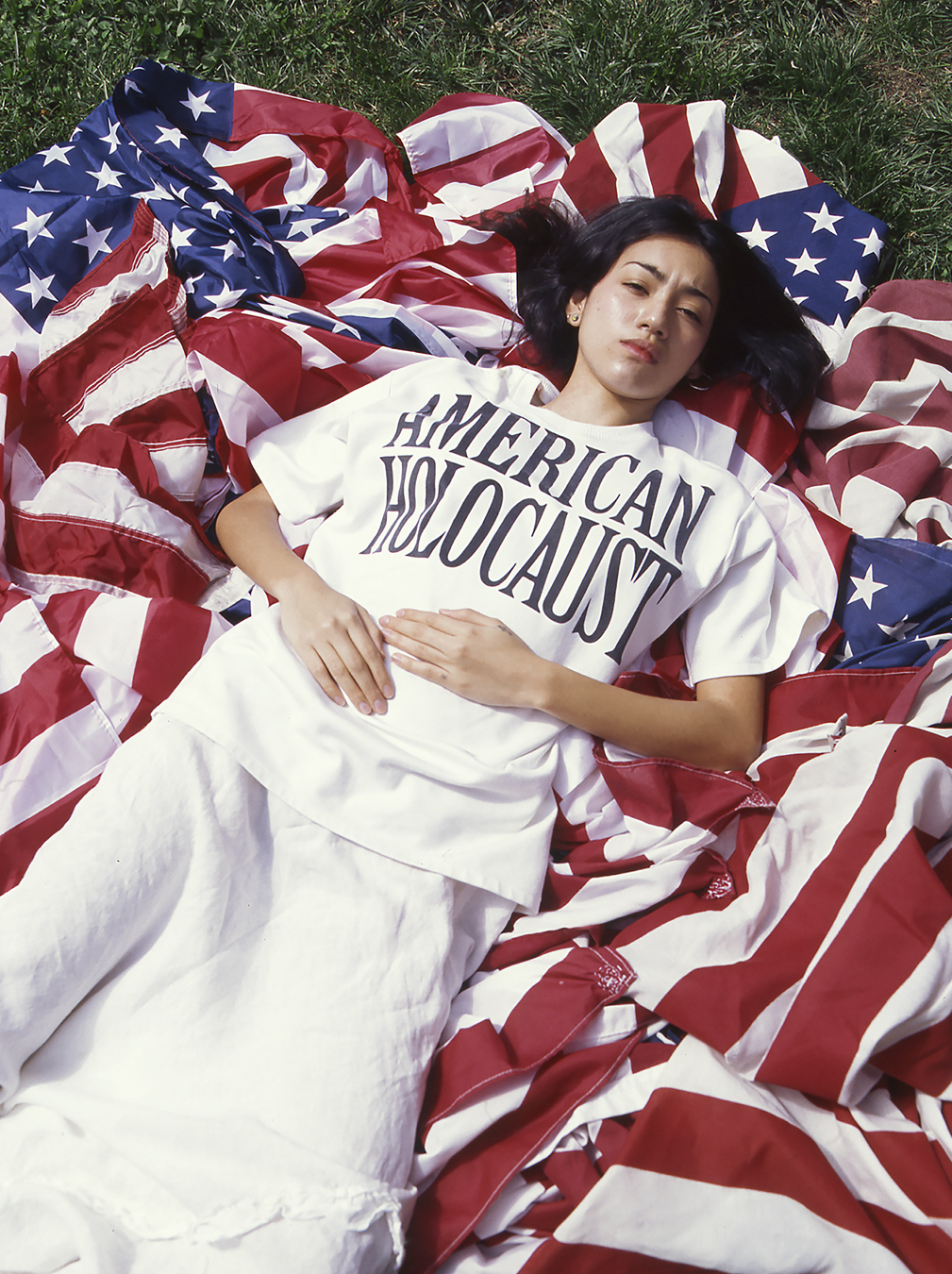
Amid the sincerity and heaviness of the issues that his work addresses, you almost forget another key reason why Vegas chose to pursue fashion in the first place – he’s a total nerd for it. If you are too, then you’ll clock the leather jacket described earlier as a nod to the painted biker jackets Yohji Yamamoto created during the early 90s; you’ll also acknowledge the renegade spirit his work shares with Vivienne Westwood and Malcolm McLaren’s Seditionaries.
It comes as welcome news, then, when Vegas shares his plans to slowly build Primer Rebelde up to the point where he’s able to design, present, and produce full ready-to-wear collections. But that’s not motivated by a pursuit of fame, fortune, or even recognition for the design skills he’s rapidly building. “My main goal in life isn’t to have a nice house, a nice car, or to have money – it’s to ensure a better future for people who look like me,” he says. “When I see my people in pain, suffering, dying – having their history and knowledge stolen, retold, and then regurgitated as misinformation, I look at it and I’m like, “‘What can I do? What can I offer?’ And that’s the history and knowledge that I had to go out and find – that has helped keep me alive today.”
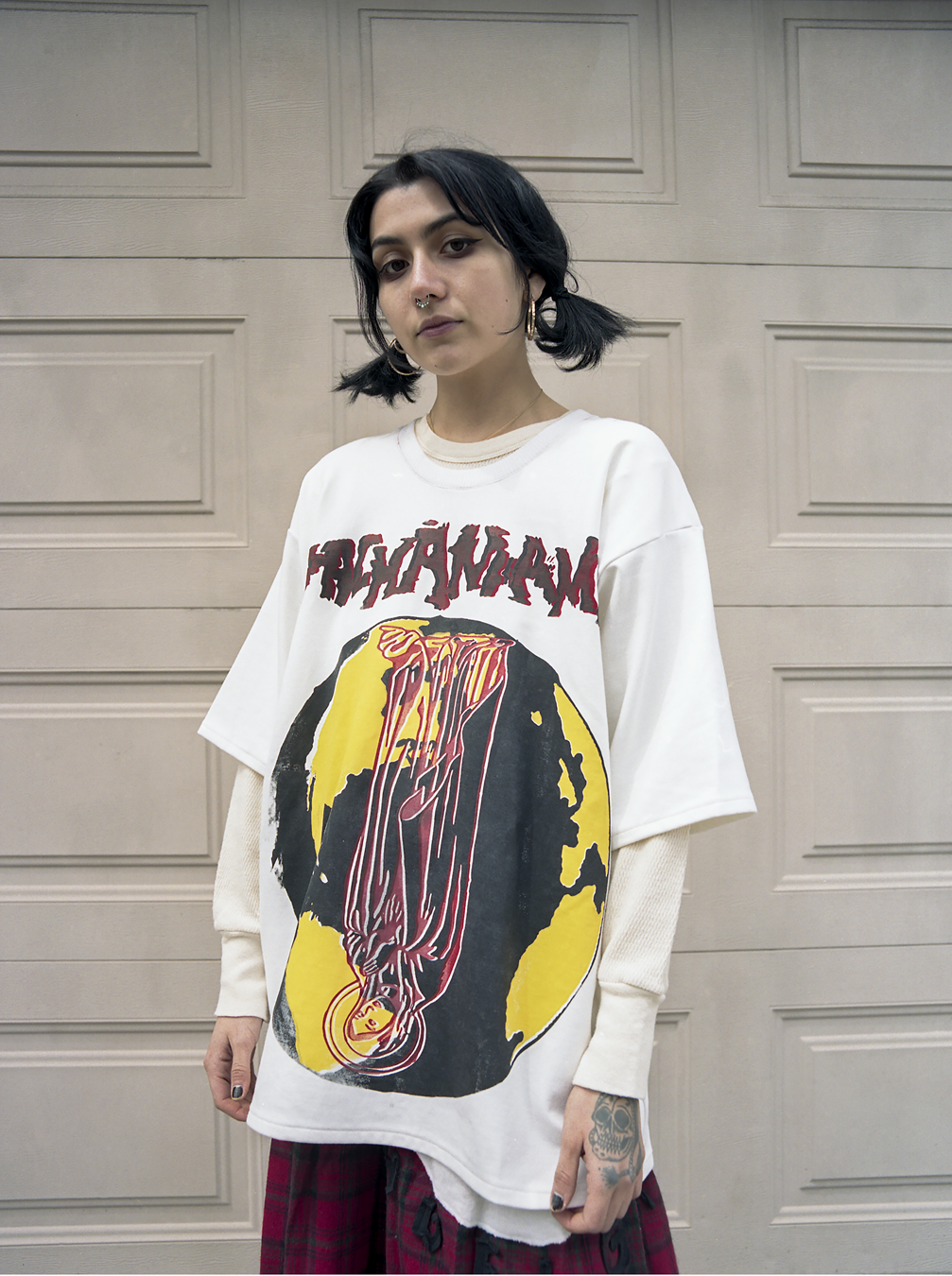
With the wealth and complexity of the conversations that Vegas’ work broaches, it felt like a disservice to have just one person sit down to interview him. So, in place of a standard Q&A, here’s an interview with the young polymath by those who know and love him best, from his mum and dad to his girlfriend; his mentors to his best friends.
Angelo Baque, Founder and Creative Director of Awake NY: Que fue tu primer rebelde? (What was your first act of rebellion?)
My first act of rebellion was growing my hair out. When I was younger, I had to wear a uniform to school and couldn’t grow my hair past my collar, so I always had a shape-up or something short. So when I came out of Catholic school I started growing my hair because I always wanted to but was never allowed. It became a part of the brand’s creation story,
as I later started braiding my hair, which was a big deal for me.

Emma Wyman, Stylist: Vegas! I think we first met in 2017, in a Vaquera casting and then fitting at my apartment in New York. You could walk in the heels, were into wearing a red lip – and the rest is history! You are such an important part of the Vaquera family, so I was wondering: what is your favourite Vaquera look, or show that you walked in?
Vaquera is family: they were the first designers to put me on a runway. My favourite Vaquera look is the Graduation Gown that closed out the SS19 show. I remember it being really funny at the time because I had never graduated from college and dropped out to pursue my goals in fashion. Also, a few people from my high school who went to college were graduating. So when I found out I was closing the show in a cap and gown it felt like a full-circle moment.
Eda and Geneva, Founders of Scope of Work and Vegas’ Mentors: What iconic NYC shoe best describes your personality? A. Uptowns, B. Timberlands, C. Prada Sneakers or D. ACGs.
It’s the vegan Timbs. Hands down.
Patric DiCaprio and Bryn Taubensee, Co-Founders and Creative Directors of Vaquera: People who grew up in NY are very mysterious to us! We can’t imagine what it would be like to know the city your whole life. What is a secret or relatively unknown place in the city that means something to you?
New York has always been my home. I was raised in Ridgewood, and for a very long time it was a secret unknown spot. People used to think I was from Jersey and couldn’t even place my hometown on a map. With that said, the entire Fresh Pond Road strip holds a special place in my heart. The old churches, mom and pop shops, the flea markets and stoop sales … that’s where it’s at.
Stanley Steel, former Awake NY Co-Worker: During your creative process, when do you determine if an idea is good or not?
When it comes to T-shirts I know I did well when I pull the screen off the T-shirt and my first thoughts are “wow”. But generally, it’s the feeling I get when I know the outcome matches what I had envisioned when I originally conceived it. When I finish my work for a collection and have everything laid out, I take a step back and say: “Is the intention I had set out accomplished with this body of work?” If yes, I go with it. If not, I’ve got to start from scratch.
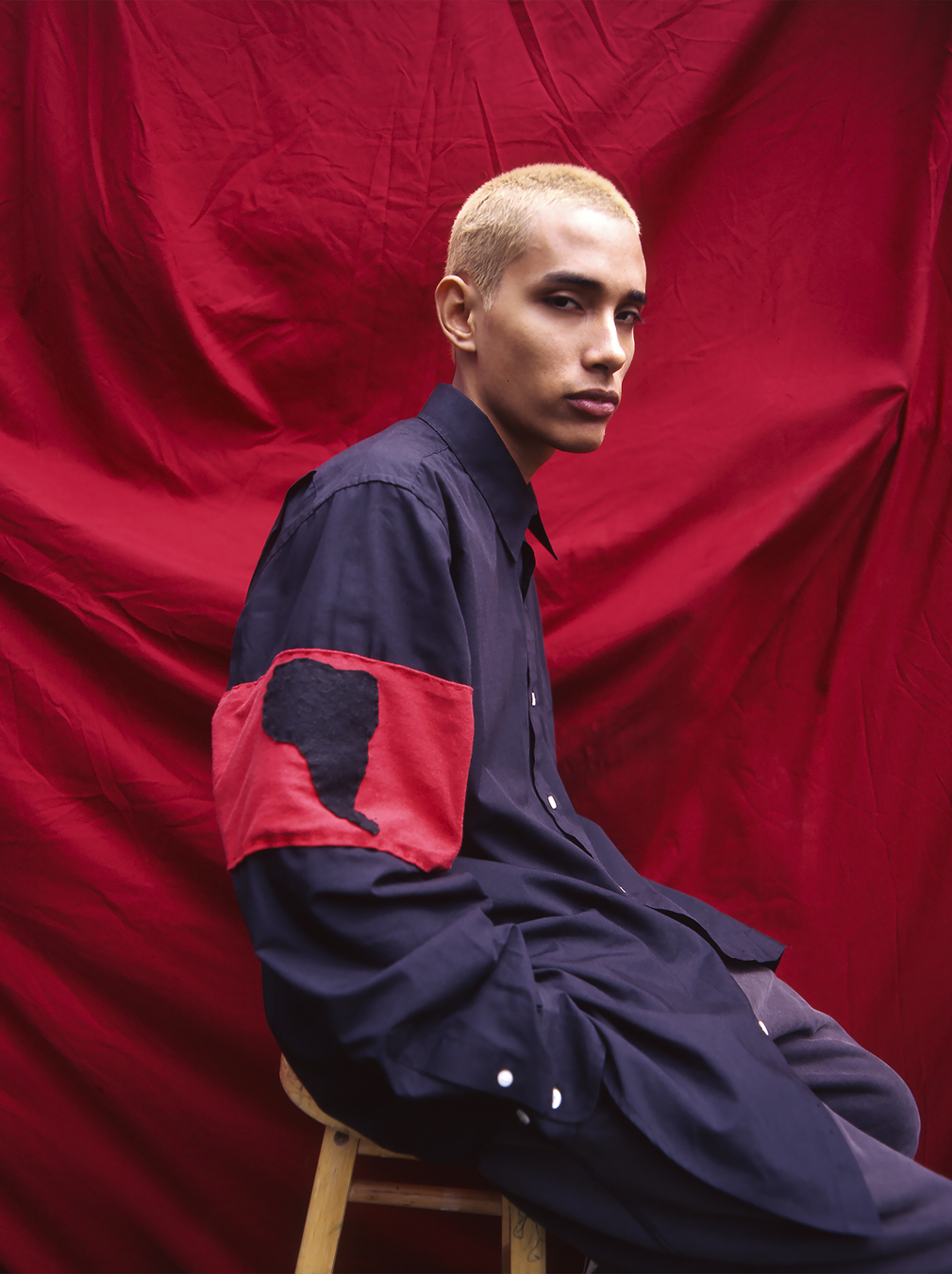
Spanto, Founder and Creative Director of Born x Raised: If you could say one thing to your ancestors what would it be?
I would tell them how grateful I am for the sacrifices that they made so that I may exist to enjoy the blessing of being able to create and tell the story of their resistance.
Sage Elsesser, Musician and Skateboarder: What makes you most proud of your Indigenous heritage? And how do you apply that to your work?
Hearing the stories of leaders like Ruminahui, Bartolina Sisa, Galvarino, Dolores Cacuango and realising those are my heroes: not the heroes they chose for me when I was in school, but the people who come from the same place my ancestors did, who believed in the same fight. I draw inspiration from these people and many more as the archetypes of my thought process. I hope and strive to be as relentless and determined to secure a better future for Indigenous people through my work as they did with theirs.
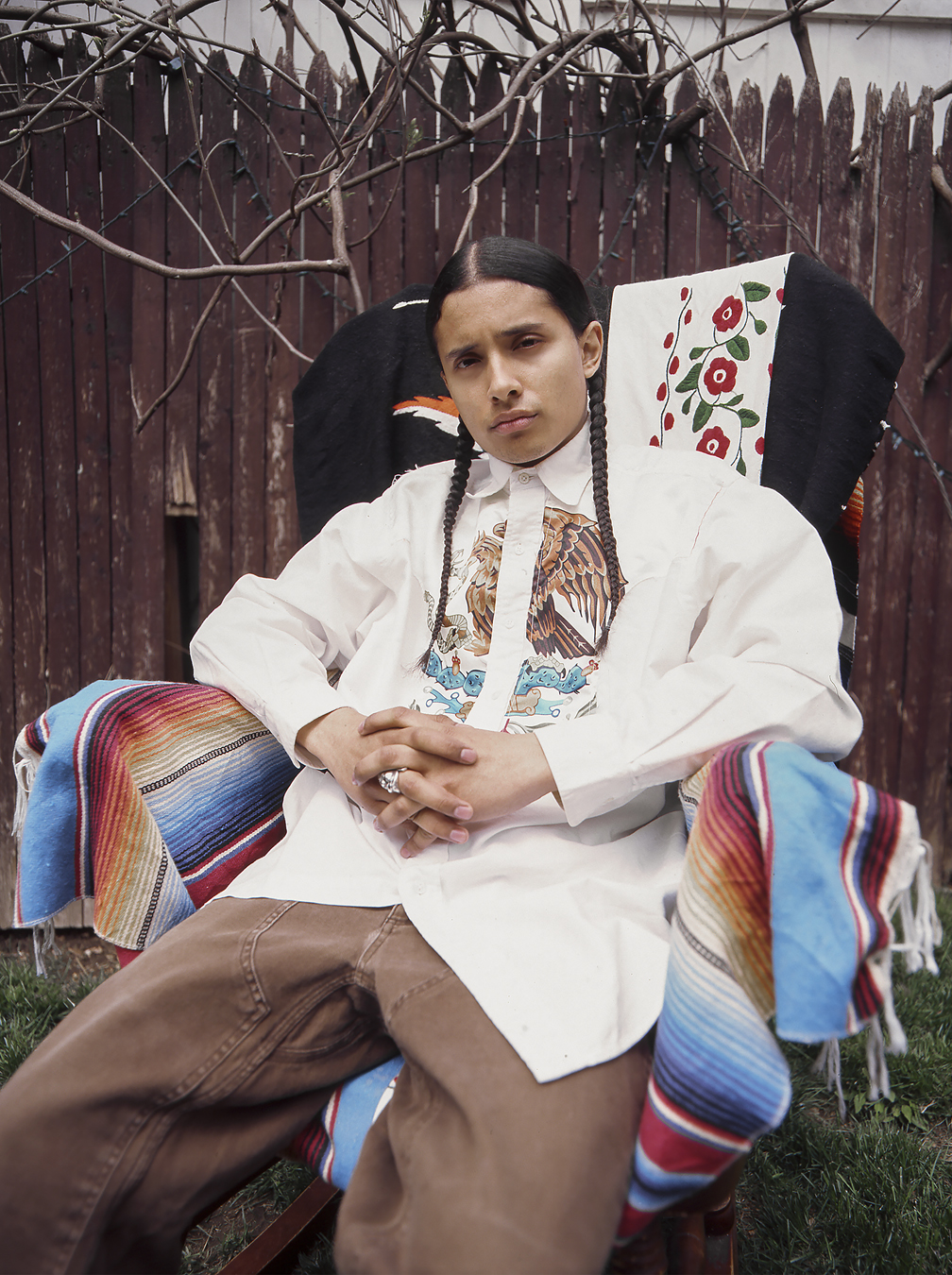
Antonio Dylan Perez, Vegas’ brother: How do you feel that your early life experiences have influenced and shaped you as a person, and your brand’s message?
As a young kid, I went to Catholic School surrounded by a bunch of teachers and kids who looked nothing like me. Having the knowledge of my culture and ancestors demonised and hidden from me I lived most of my childhood in the unknown. It created this rebellious force within me, as I was actively being pushed into this idea of religious conformity and self hate. Religion plays a large role in my creative process, but it was the journey from ignorance to awakening that led me to the creation of Primer Rebelde. It’s my reconnection process and the relationship that exists between who I was told to be and who I am.
Sylvia and Victor Perez, Vegas’ Mum and Dad: Who or what influenced you in naming your brand?
The moment I watched También la lluvia I knew Hatuey, the “Primer Rebelde De America”, was going to be my main inspiration. Before I had seen the film there was something in me that wanted to finally have my own voice in the fashion world. After seeing a reenactment of Hatuey’s final moments, I knew I wanted to help carry the torch to others who had not heard of him, and other Indigenous heroes and heroines so they may live forever through us saying their names.
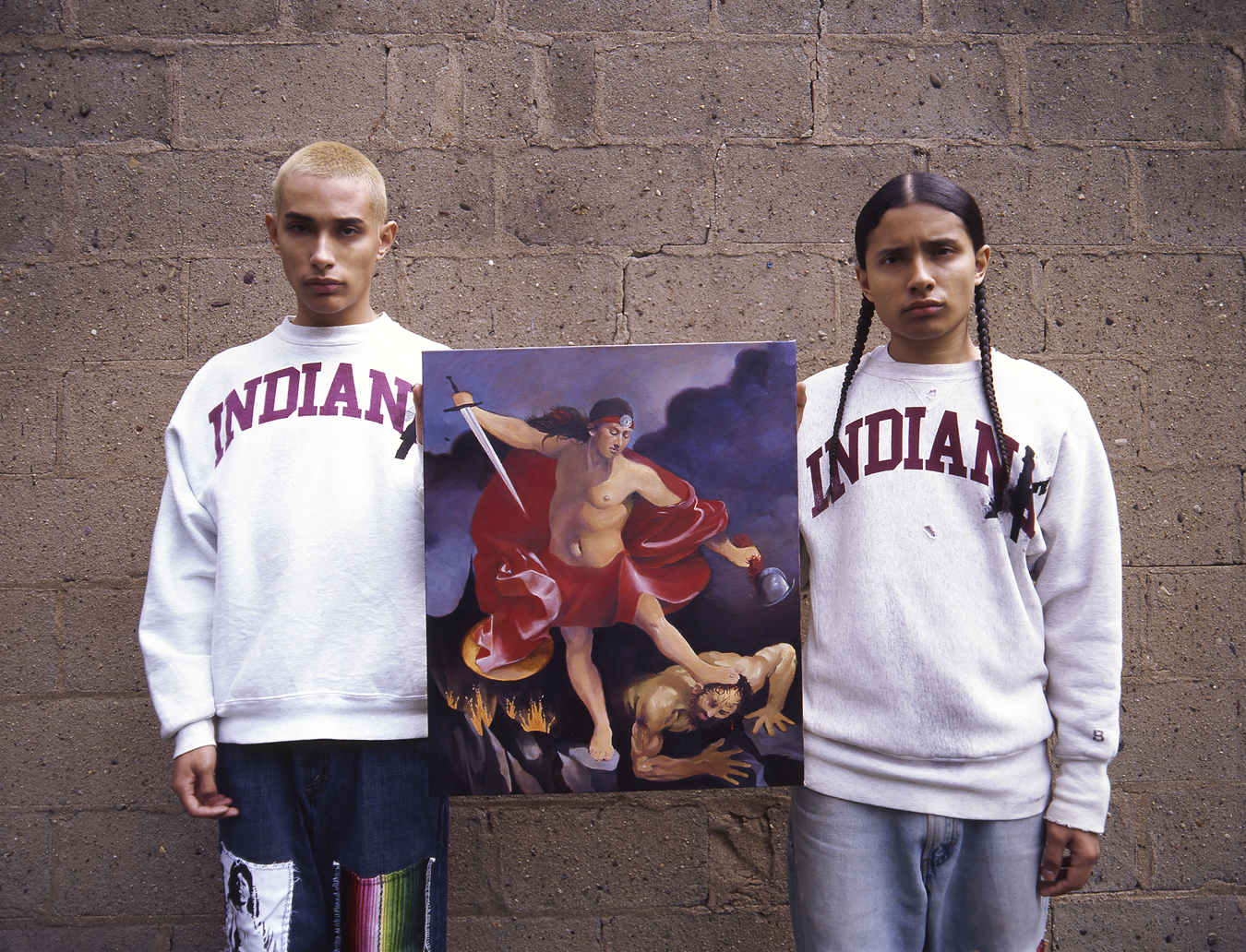
Liana Waller, Vegas’ Girlfriend: What can we expect from your future RTW shows? And who are your biggest inspirations in high fashion who make you want to move into that space?
For starters, womenswear and theatre. I want to be able to further expand and abstract the concepts that I’m currently building on with Primer Rebelde. For me, the shows need to create a full experience, or else it doesn’t justify being a live runway. I come from almost six years of classical training as an actor, and I want to be able to emanate the feeling one gets from going to live theatre when they come to my show. It needs to feel as if there is something actively happening, and that not only the people but the clothes are living, breathing, and feeling before your eyes. My biggest inspirations and role models are Alexander McQueen, Marc Jacobs, and Simone Rocha.
Kenneth Shirley, Founder of Indigenous Enterprises: What does it mean to be Indigenous to you?
To be Indigenous is to be me, to exist. Most importantly it is who I am in relation to my ancestors and my homelands. It’s about empowering the next generation of kids who may not have the opportunity to learn about the true history of the Americas, and also elders who had their indigeneity beaten out of them, and made them fear identifying with their own culture.
Raul Lopez, Founder and Creative Director of LUAR: Why did you feel it was your calling to start a brand representing Indigenous culture? What do you think your brand will do for you and Indigenous people? And is it only for Indigenous people?
I felt compelled to serve and offer everything I could to the people, places, and things that nurtured me on my path of reconnection. I’m an artist, and through creating I can build an idea of a better future for the youth, so they can end the cycle of disconnection earlier than I did. The main focus was giving the power of Indigenous identity back to Indigenous people. We see throughout history that the idea of what an Indigenous person is always ends up in the hands of non-Indigenous people.
For me, it’s about taking back our identities, because without that we stand on nothing. But I don’t want to exclude anyone: many people appreciate and learn from what I’m doing without ever buying a tee. To me that’s priceless.
Jo Park, Awake NY Co-Worker: What do you want to be when you grow up, Vegas?
A ready-to-wear designer. Playwright. Actor. But most importantly: Indian and happy.
Follow i-D on Instagram and TikTok for more from the new issue.
Credits
Photography Lucka Ngô
Fashion Victor Vegas
Fashion assistance Liana Waller.
Casting Victor Vegas.
Models Dylan, Maria Fernanda, Ramona Jasman-Rios and Victor Vegas.
All clothing Primer Rebelde de America
Special thanks to Sylvia Perez, Victor Perez, Angelo Baque and Alastair McKimm.
